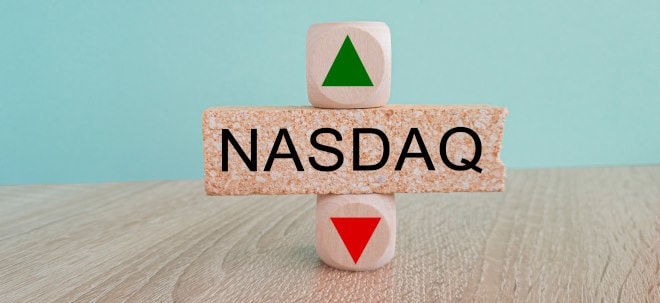die Mobil-Betreiber haben jetzt sechs Wochen länger Zeit, um das Ortungssystem auszusuchen. Es hilft sicherlich eher den GPS-Befürwortern.
Hier die Meldung:
News September 20, 19:50 Eastern Time
FCC EASES E-911 HANDSET ROLL-OUT, STICKS TO 2001 DEADLINE
Sep. 20, 2000 (Global Positioning & Navigation News, Vol. 10, No. 19 via COMTEX)
-- The U.S. Federal Communications Commission (FCC) responded this month to
previous complaints by wireless carriers and handset makers about the deadlines for achieving precise location of wireless emergency E-911 callers. FCC gave carriers with GPS-based handset solutions another 12 months to achieve full market penetration. Carriers also got an extra six weeks upfront to declare their technology choice. The agency made some changes in the GPS handset deployment schedule, but stuck to its Oct. 1, 2001, initial implementation deadline for both handset and network solutions.
The FCC move "opens a slightly larger window for GPS in handsets," says Andrew Rimkus, vice president of marketing with Integrated Data Communications (IDC), which has developed GPS-based wireless location solutions. Nevertheless, some commercial GPS-based products will be available before Oct. 1, 2001, he predicts. IDC is working with AAA's telematics unit, Response Services, to support GPS-assisted mobile phones by early next year (GPNN, Aug. 9, 2000).
Qualcomm [QCOM], meanwhile, says it's confident that phones with its integrated MSM3300 GPS/CDMA solution will be coming to market soon. KDDI, the second-largest wireless carrier in Japan, has required its suppliers to use the MSM3300 for position location, the company says. Qualcomm expects GPS-enabled handsets to hit the Japanese market next spring. Based on past experience, similar handsets should appear in the U.S. market by next summer, Qualcomm representatives say. The company has not disclosed any deals with U.S. carriers. The MSM3300 is to ship in commercial volumes by Q4 of this year.
"Because all the carriers are saying they need more time to make a decision," FCC necessarily has to let them proceed at their chosen pace, says Elliott Hamilton, senior vice president of Strategis Group, a market research firm in Washington, D.C. "But the [Oct. 1, 2001] deadline is seriously in question." The decision is indicative of the complexity of the issue, he says.
Although the GPS side got a break, it's not time for them to celebrate, says
Oliver Hilsenrath, chairman and CEO of U.S. Wireless [USWC, USP], which provides a network-based location solution. "The fact that the GPS community is slowing the availability of their solution is only going to reduce their market share." This is a "narrowing of the window of opportunity for those handsets."
FCC's basic adherence to its existing schedule will speed up things on the
handset side, says analyst Clem Driscoll, president of C.J. Driscoll Associates, Palos Verdes Estates, Calif. "There has been a momentum shift toward networks over the last 12 months, as handset-based solutions have dragged along," he says. But if GPS phones get out to the market and provide the necessary performance and services at an acceptable cost, they'll be very successful, regardless of network solutions, he says.
The new FCC order also granted GSM-standard carrier VoiceStream - which is using a hybrid solution - two years' grace on reaching handset-required accuracy levels of 50 meters (67 percent of the time) and 150 meters (95 percent of the time). Two commissioners disagreed with the VoiceStream decision, although mainly on administrative grounds. Qualcomm has opposed granting a waiver to VoiceStream. "The FCC conclusion that there is no viable wireless solution for location in the GSM market is incorrect," Qualcomm representatives say. In fact, Qualcomm and its SnapTrack unit have demonstrated GSM-based location technology in Europe and the U.S., they say.
The agency also eliminated the separate, and possibly more aggressive, set of deadlines for handset-based solutions, originally to be triggered by a public safety request for service.
E-911 Deadlines Shift
* Nov. 9, 2000: Carriers choose handset or network location technology. Extended from Oct. 1, 2000.
* Oct. 1, 2001: Carriers begin selling, activating ALI*-capable handsets.
Extended from March 1, 2001.
* Dec. 31, 2001: 25 percent of all new handsets activated are to be ALI-
capable.
* June 30, 2002: 50 percent all new handsets, ALI-capable. Extended from Oct. 1, 2001.
* Dec. 31, 2002: All new digital handsets, ALI-capable. Extended from Oct. 1,2002.
* Dec. 31, 2005: Carriers to reach full penetration of subscriber bases with
ALI-capable handsets. Extended from Dec. 31, 2004.
*ALI is automatic location identification Source: FCC
Der Artikel ist deswegen auch gut, weil man mal die Konkurrenten von USWC sieht. Ich bin trotzdem noch positiv getsimmt für USWC.
Und zu furby: Das Interview von Hilsenrath war wirklich nict doll.
Gruß ruebe |


 Thread abonnieren
Thread abonnieren


